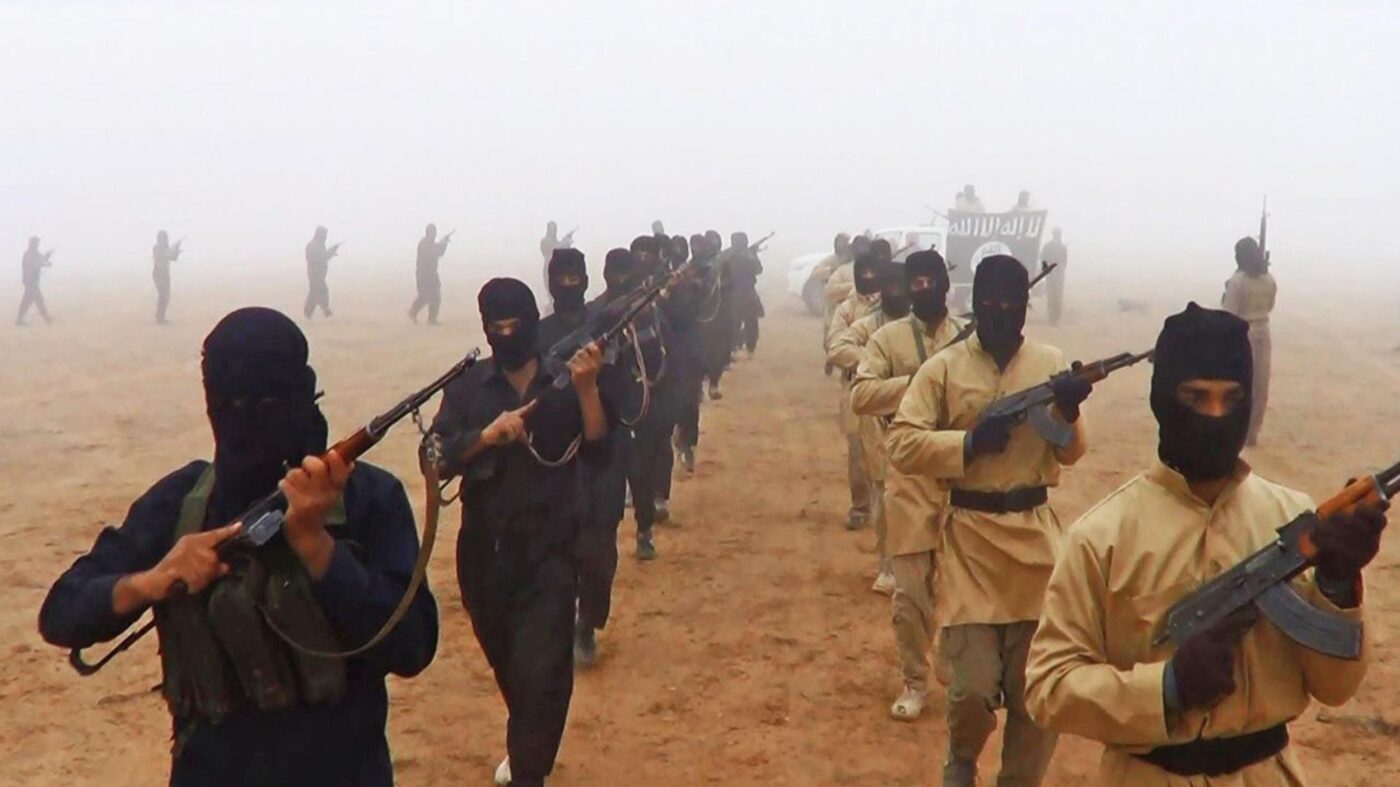ON SEPTEMBER 18, the Islamic State in Iraq and Syria (ISIS), a Sunni militant group that is currently expanding its territory in the two war-torn states, released a propaganda video from Al Hayat Media Center, the group’s media wing.
Roughly a minute long, the video was rife with footage of simulated explosions targeted at American troops, United States (US) President Barack Obama and the White House. It was released around a week after Obama vowed “to degrade and ultimately destroy the terrorist group” in an address to the nation on September 10.
The group’s campaign was made apparent to the global community after its current leader, Abu Bakr al-Baghdadi, was declared caliph and “leader for Muslims everywhere” in June. According to Al Jazeera, “a caliphate [is] effectively an Islamic republic led by one leader, regardless of national boundaries.”
ISIS has left tens of thousands dead and displaced, and has captured a number of cities including Mosul and Fallujah in Iraq, and Raqqa in Northern Syria, to name a few. In August and September, the group released execution videos of American and British hostages, raising alarm outside the Middle East.
Unconventional warfare
“This is no longer a conventional warfare [between] states,” says Gino Trinidad, lecturer for the Political Science Department. He points out that there are many actors concerned in this “networked” conflict.
The US launched its aerial campaign in Northern Iraq in early August at the request of the Iraqi government, keeping ISIS forces from seizing the Mosul and Haditha dams and allowing the Iraqi army to boost its offensive against the terrorist group.
In his September address, Obama promised to degrade the group through air power and support for partner forces on the ground. “It will not involve American combat troops fighting on foreign soil,” he said, urging people to understand that the effort will be different from the war in Iraq in 2003.
Involved in the ground offensive against ISIS are the Peshmerga, the military faction of the Kurds, an ethnic group in Iraq, and the Free Syrian Army, an army of moderate rebels against the Bashar al-Assad regime.
Recruitment tactics
In a written analysis of ISIS’s tactics, Michael Knights of the Washington Institute for Near East policy says, “[ISIS] had been steadily strengthening and actively shaping the future operating environment for four years [leading up to June 2014].” According to Knights, this allowed the group to strategically weaken its enemy forces and also expand its militant force.
CNN reports that around 20,000 to 30,000 militants could be fighting for ISIS. “The group is a magnet for militants from around the world,” writes Thanassis Cambanis in a New York Times article in June, pointing out the group’s use of Twitter and other social media sites to showcase its international fighters. ISIS launched an Arabic Android application called “The Dawn of Glad Tidings” that boosts the frequency of the group’s hashtags on Twitter.
According to Trinidad, that “the war has evolved into these forms [social media]” implies that the conflict is more ideological than physical.
It is an ideological conflict that is spreading to the Philippines. In July, the Abu Sayyaf Group (ASG) released a video of senior leader Isnilon Hapilon swearing allegiance to al-Baghdadi and the movement. The ASG, listed as a Foreign Terrorist Organization by the US, is a notorious militant group that has been a constant threat in Jolo and Basilan.
Meanwhile, the Bangsamoro Islamic Freedom Fighters (BIFF) alleged that they are in direct mobile communication with ISIS. BIFF was formerly a part of the Moro Islamic Liberation Front until they split from the group due to disagreements regarding the peace process with the Philippine government.
Both the ASG and BIFF continue to push for an independent Islamic state in Mindanao that would adhere to sharia law, a set of guidelines for the Muslim way of life. When practiced strictly, the criminal justice aspect of sharia may include punishments such as beheadings.
Trinidad thinks that resources are the main reason behind ASG and BIFF’s allegiance. ISIS captured and resumed production in oil fields in Syria and has been reselling the electricity produced to the government—a scheme that has made the group the wealthiest terrorist organization in the world.
However, Trinidad believes that the movement remains to be decentralized. He adds that this decentralized nature is one of the cracks that governments against ISIS can capitalize on.
Trinidad also underscores the importance of the Bangsamoro Basic Law (BBL). He says that the BBL gives the government “a fighting chance to quell [the movement] for the people not to buy in on the ISIS-inflected ideas.”
A localized approach
As of August, the Armed Forces of the Philippines (AFP) considers ISIS’s threat “out there [in the Middle East], in the conflict areas and not here.” The AFP says they are still confirming the claims that Filipino jihadists have been sent to fight in the conflict areas.
Inah Robles, president of the Ateneo Debate Society, believes that having a more localized approach could prove beneficial to quelling the violence. According to her, “The Kurds are at the best position to mediate peace. They have been shown to be tolerant towards the minority and people of different religions.”
Bas Claudio, vice president for Public Relations of The Ateneo Assembly, agrees with this, saying that Middle Eastern countries with Sunni majorities would be crucial in putting a stop to the conflict. “ISIS can only be crushed when actors from regional governments, to states, and finally, local forces work in unison,” he says.




